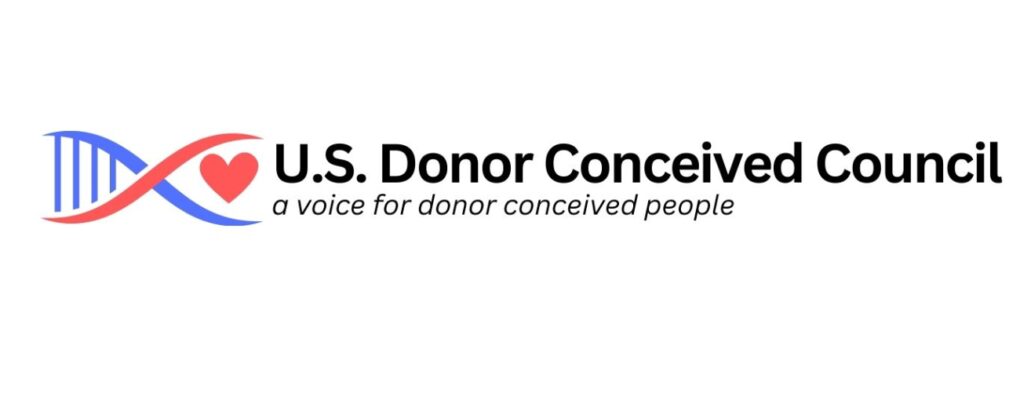
FOR IMMEDIATE RELEASE
Alabama High Court Ruling Also Harmful to Donor Conceived People and Their Families
Feb. 24, 2024
TUCSON, AZ. – U.S. Donor Conceived Council (USDCC)—a nonprofit that advocates for the interests of people conceived via egg, sperm, or embryo donation—expresses its deepest condolences to the Alabama couples who lost the chance to build families using their own gametes due to the unplanned destruction of their stored embryos by a third party.
USDCC strongly supports patients’ rights to use and access IVF and other assisted reproduction technologies (ART) to build their families. IVF allows many people to successfully treat their infertility, thereby minimizing the need to use third-party donor gametes. USDCC joins others to express concerns about the potential implications of the Supreme Court of Alabama’s opinion in LePage v. The Center for Reproductive Medicine, P.C.
Alabama’s high court held that under the state’s wrongful death statute and a 2018 constitutional amendment, “unborn children” includes embryos that are fertilized but exist outside of the body (i.e., in vitro). This interpretation has already halted the availability of IVF in the state and could invite similar challenges across the country, exacerbating inequities in fertility care access.
“As legal scholars have noted, the court’s decision is likely to harm not only patients but also gamete donors and donor conceived people by, for example, possibly requiring embryo donation as the only legal means of embryo disposition,” said USDCC Vice President of Legal & Government Affairs Tyler Levy Sniff.
It is currently unclear how Alabama IVF clinics should or could comply with the American Society for Reproductive Medicine’s non-binding guidelines for disposition of embryos. The interference with patients’ rights in Alabama—and any states that may follow suit—to dispose of embryos in the manner they choose (e.g., through discard, donation to scientific research) could contribute to the growing number of frozen embryos in the United States, which is estimated to be more than 1.5 million.
“The inability for patients to dispose of their extra embryos through means other than donation could, when those embryos were created using third-party donor gametes, exacerbate the existing problems of sibling groups that exceed 100-200 offspring per donor and the potential for accidental incest,” said Levy Sniff.
Additionally, the existing surplus of frozen embryos in the United States has allowed for the birth of children through transfer of embryos stored for decades. Because many donor conceived people value connecting with close genetic relatives, an increase in the use of “older” embryos is very concerning. Due to the passage of time, people born as the result of using older embryos may not have an opportunity to connect with, or obtain their family medical history from, their close genetic relatives, including the donor or siblings born decades earlier.
USDCC is also concerned that patients who are denied the ability to choose dispositions other than embryo donation may be functionally unable to access IVF. Law professors and USDCC advisory committee members Naomi Cahn and Sonia Suter noted that the Alabama decision shows the need to protect choices about the timing and means of family-building and draws even more attention to the attacks on reproductive justice.
In the wake of Alabama’s opinion, patients may be burdened with the long-term cost of embryo storage and/or will be forced to create a small number of embryos per transfer and undergo repeated IVF cycles to achieve a viable pregnancy, which will disproportionately impact patients with limited economic means who already struggle to afford IVF. Alternatively, patients may be forced into donating their embryos for use by others, impacting their right to choose whether to have more genetic children.
USDCC will continue to support access to ART, including IVF, while pursuing reforms to benefit donor conceived people and their families.
USDCC is an all-volunteer 501(c)(3) nonprofit that relies on donations. Learn more about USDCC at usdcc.org.
###
Media Contact: Kevin Martin, public relations director, [email protected]
